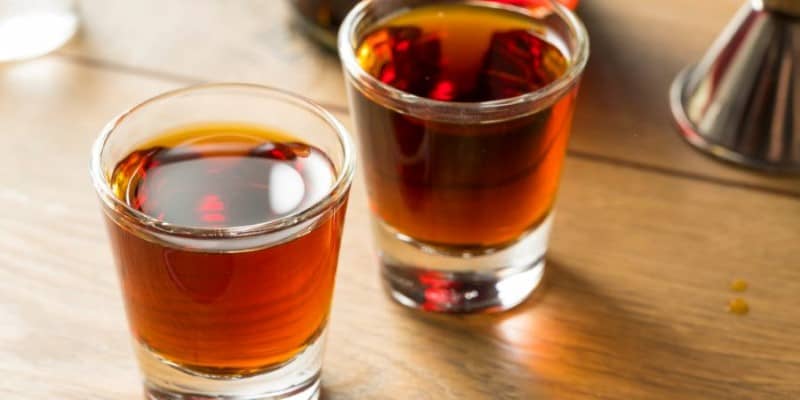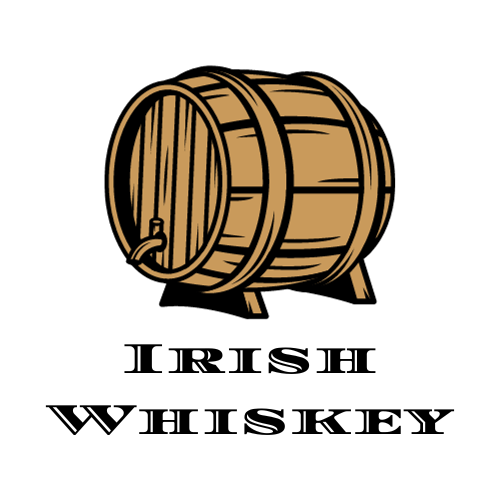Are you curious about What Does Liqueur Taste Like? Look no further! This article will provide you with the answers you seek. Explore the fascinating world of liqueur flavors and discover how these alcoholic beverages can tantalize your taste buds.
From sweet and fruity to bitter and herbal, liqueurs offer a wide range of tastes that are sure to delight. So sit back, relax, and let us take you on a flavorful journey into the realm of liqueur tasting.
The Basics of Liqueur
Liqueur is a popular and delicious alcoholic beverage that offers a wide range of flavors and aromas. This article will provide you with a comprehensive understanding of liqueur, including its definition, different types, production process, flavors and aromas, factors affecting taste, popular liqueurs and their taste profiles, pairing liqueurs with food, serving and enjoying liqueur, health considerations, and frequently asked questions.
Definition of Liqueur
Liqueur, also known as cordial or schnapps, is a sweet and flavored alcoholic beverage that is often enjoyed as an after-dinner drink. It is made by combining a distilled spirit with various flavoring agents such as fruits, herbs, spices, or botanicals. Unlike liquor, which refers to any distilled alcoholic beverage, liqueur is typically lower in alcohol content and has a pronounced taste profile.
Different Types of Liqueur
There are numerous types of liqueurs available, each with its own unique flavor profile. Some of the most common types include fruit liqueurs, herbal liqueurs, cream liqueurs, and nut liqueurs. Fruit liqueurs are made by steeping fruits in alcohol, creating a sweet and fruity taste. Herbal liqueurs incorporate botanicals and herbs, resulting in a more complex and spicy flavor. Cream liqueurs offer a creamy and rich taste experience, while nut liqueurs provide a nutty and smooth flavor.
Production Process of Liqueur
The production process of liqueur involves several steps that contribute to its final taste profile. It begins with selecting a base alcohol, which can be a neutral spirit, brandy, or whiskey. The chosen alcohol is then combined with flavoring agents such as fruits, herbs, spices, or botanicals. The ingredients are infused or macerated for a period of time to extract the desired flavors. After this, sweeteners such as sugar, honey, or syrup are added to enhance the overall taste. Finally, the liqueur is aged, filtered, and bottled, ready to be enjoyed.
Flavors and Aromas of Liqueur
Liqueurs offer a wide range of flavors and aromas, making them a versatile choice for various occasions. So, Here are some of the main taste profiles found in liqueurs:
Sweet and Fruity
Many liqueurs have a sweet and fruity taste that is reminiscent of the fruits used in their production. For example, strawberry liqueur offers a vibrant and sweet strawberry flavor, while peach liqueur brings a juicy and succulent taste. These fruity liqueurs can be enjoyed on their own, mixed into cocktails, or used as a topping for desserts.
Herbal and Spicy
Herbal liqueurs often combine a variety of botanicals and herbs, resulting in a complex and aromatic flavor profile. Take, for instance, chartreuse liqueur, which boasts a blend of over 130 different botanicals. It offers a herbal and spicy taste that is both distinctive and invigorating. These types of liqueurs can be sipped neat, used in cocktails for added depth, or incorporated into cooking and baking recipes.
Creamy and Rich
Cream liqueurs are characterized by their creamy and rich taste. With ingredients such as cream, chocolate, or coffee, these liqueurs provide a velvety and indulgent flavor experience. Baileys Irish Cream is a highly popular cream liqueur that offers a smooth and luxurious combination of Irish whiskey and cream. These liqueurs are often enjoyed on the rocks, added to coffee or hot chocolate, or used as an ingredient in desserts.

This image is property of images.pexels.com.
Factors Affecting the Taste of Liqueur
Several factors contribute to the overall taste of liqueur, creating a diverse range of flavors and aroma profiles. Understanding these factors can help you appreciate and select liqueurs that suit your preferences. Here are the key factors that influence the taste of liqueur:
Base Ingredients
The choice of base alcohol significantly impacts the taste of liqueur. Neutral spirits, such as vodka or grain alcohol, provide a clean and crisp base that allows the flavors of the added ingredients to shine. On the other hand, using aged spirits, such as brandy or whiskey, can impart a distinct richness and depth to the final product. Different base alcohols lend themselves to different flavor profiles, so exploring various liqueurs can be an exciting journey of taste discovery.
Botanicals and Herbs
The selection of botanicals and herbs used in the production process greatly influences the taste of herbal liqueurs. These flavoring agents can range from aromatic spices like cinnamon and nutmeg to more exotic ingredients like anise or juniper berries. Additionally, The specific combination and proportion of these botanicals impart unique flavors, making each herbal liqueur a distinct sensory experience.
Ageing Process
Ageing plays a crucial role in the development of the taste and complexity of liqueur. Some liqueurs are aged in wooden barrels, allowing the flavors to mellow and meld over time. This ageing process can impart a smoother and more rounded taste, as well as add notes of vanilla, caramel, or oak. The length of the ageing process varies depending on the liqueur, with some requiring months or even years to reach their optimal flavor profile.
Popular Liqueurs and their Taste Profiles
Now that you understand the various flavors and aromas of liqueurs, let’s explore some popular liqueurs and their distinctive taste profiles:
Amaretto
Amaretto is a sweet and nutty liqueur that is derived from almonds. It offers a rich and syrupy taste, with notes of marzipan and vanilla. Amaretto is often enjoyed neat, on the rocks, or used as an ingredient in dessert cocktails and coffee beverages.
Taste Profile: Sweet, nutty, almond, marzipan, vanilla.
Baileys Irish Cream
Baileys Irish Cream is a renowned cream liqueur that combines Irish whiskey, cream, and a touch of chocolate. It offers a smooth and velvety taste, with hints of caramel and coffee. Additionally, Baileys Irish Cream is a versatile liqueur that can be enjoyed on its own, in coffee or hot chocolate, or used for creating decadent desserts.
Taste Profile: Creamy, rich, chocolate, caramel, coffee.
Grand Marnier
Grand Marnier is a premium orange liqueur that combines cognac with bitter orange essence. It offers a harmonious balance between sweetness and bitterness, with vibrant citrus notes and a hint of oak. Grand Marnier can be enjoyed neat, used in classic cocktails like the Margarita or Cosmopolitan, or added to sauces and marinades for a tangy kick.
Taste Profile: Citrus, sweet, bitter, orange, oak.
Limoncello
Limoncello is an Italian lemon liqueur that exudes vibrant citrus flavors and a refreshing zing. Made from lemon zest steeped in alcohol and sweetened with sugar, Limoncello offers a bright and tangy taste, often served chilled as a digestif or mixed into cocktails. Its effervescent flavor also makes it a popular ingredient in desserts and sorbets.
Taste Profile: Citrusy, tangy, lemon, refreshing.

This image is property of images.pexels.com.
Pairing Liqueurs with Food
Liqueurs not only offer a delightful sipping experience but also pair well with various types of food. Here are some suggestions for pairing liqueurs with different culinary delights:
Dessert Pairings
Many liqueurs are naturally sweet and pair beautifully with desserts. For example, pairing chocolate liqueur with chocolate mousse or cake enhances the richness of both elements. Fruity liqueurs like raspberry or strawberry can be drizzled over a bowl of vanilla ice cream for a burst of fresh and fruity flavor. Additionally, cream liqueurs such as Irish cream or hazelnut liqueur complement creamy desserts like tiramisu or crème brûlée.
Cheese Pairings
Certain liqueurs pair exceptionally well with different types of cheese. For instance, serving a spicy herbal liqueur alongside a blue cheese can create a flavor combination that is both bold and harmonious. A whiskey-based liqueur pairs wonderfully with sharp cheddar or Gouda, enhancing the complexity of both the cheese and the spirit. Cream liqueurs can be enjoyed alongside soft and mild cheeses, such as Brie or Camembert, creating a creamy and luxurious taste experience.
Cocktail Mixers
Liqueurs are commonly used as mixers in cocktails, adding depth, complexity, and a touch of sweetness. Fruit liqueurs can add a burst of flavor to popular cocktails like the Margarita or Moscow Mule. Herbal liqueurs are often used in classic cocktails such as the Negroni or the Sazerac, imparting a unique and aromatic twist. Additionally, You can mix cream liqueurs into coffee-based cocktails like the White Russian or use them to create creamy dessert-like concoctions.
Serving and Enjoying Liqueur
To fully enjoy the taste and aroma of liqueur, certain factors come into play, including glassware, temperature, sipping techniques, mixing techniques, and presentation:
Glassware and Temperature
Choosing the right glassware allows you to appreciate the color, aroma, and taste of the liqueur. Snifter glasses are ideal for savoring the aromas as they capture and concentrate the scents. Additionally, using a chilled glass can enhance the overall drinking experience, especially for cream liqueurs or fruit liqueurs, which are often served cold.

Sipping and Mixing Techniques
Presentation and Garnishes
Presenting and garnishing your liqueur can enhance the overall aesthetic appeal and provide additional flavor notes. Adding a twist of citrus peel or a sprig of fresh herbs to your glass not only makes the drink visually appealing but also imparts a subtle hint of aroma. Utilizing elegant serving trays or decorative coasters adds an extra touch of sophistication to your liqueur experience.
Also Check: What Is Absinthe? Exploring Its Origins
Health Considerations
While liqueurs offer a delightful indulgence, it is important to be aware of certain health considerations:
Alcohol Content
Caloric Content
Liqueurs often contain sugar or other sweeteners, which can contribute to their caloric content. If you are monitoring your calorie intake, it is essential to consider the caloric content of your liqueur choices. Additionally, Opting for lower-sugar or sugar-free liqueurs can be a healthier option.
Potential Allergens
Some liqueurs may contain potential allergens, such as nuts or dairy products. It is important to read the labels and ingredient lists if you have any known allergies or dietary restrictions. Additionally, if you are uncertain, it is advisable to consult with a healthcare professional or allergist.
Frequently Asked Questions (FAQs)
What is the difference between liqueur and liquor?
Liqueur and liquor are both alcoholic beverages but have distinct characteristics. People often enjoy liqueur, a sweet and flavored alcoholic beverage, after meals. It contains added flavorings such as fruit, herbs, or spices, resulting in a distinctive taste profile. On the other hand, liquor refers to any distilled alcoholic beverage, including spirits like vodka, whiskey, rum, or tequila, which do not typically have added flavors.
Can you drink liqueur straight?
What are some non-alcoholic alternatives to liqueur for flavoring drinks?
Non-alcoholic alternatives to liqueur for flavoring drinks include extracts, syrups, and fruit purees. One can use extracts like vanilla, almond, or coffee in small amounts to add flavor to beverages. Syrups, like flavored coffee syrups or fruit syrups, can provide sweetness and taste. As an alternative to fruit liqueurs, one can use fruit purees to impart natural fruity flavors to drinks.


